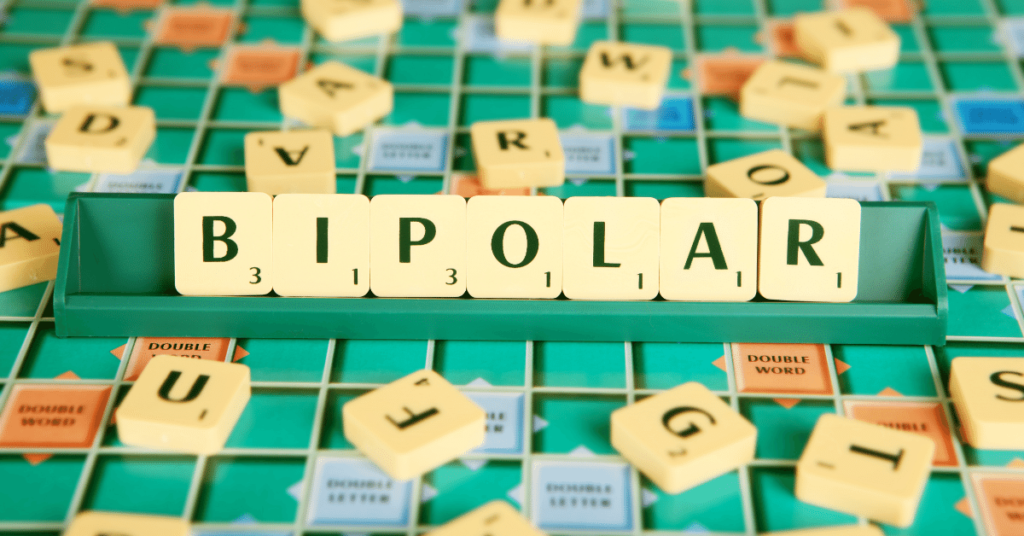Bipolar disorder, also known as manic-depressive illness, is a mental health condition in which people have periods of depression and mania. The depressive episodes can be so severe that it’s sometimes necessary to hospitalize the person for their safety – but even then there are some things you can do at home to make life easier on them. This article will give you a short guide to long-term care for bipolar disorder medication patients.
What Is Bipolar Disorder?

Bipolar disorder is a mental health condition in which people have periods of depression and mania. The depressive episodes can be so severe that it’s sometimes necessary to hospitalize the person for their safety – but even then there are some things you can do at home to make life easier on them.
People with bipolar disorder have a lot of mood swings. They can’t feel good for too long without feeling bad again. Some people get really mad and do things they shouldn’t be doing. Others can’t sleep at all because they are so busy thinking about how to make themselves feel better.
Negative Impacts Of Bipolar Disorder
The side effects of Bipolar Disorder can be very serious. The risk of suicide is higher for people with bipolar disorder, and many individuals experiencing manic or depressive episodes attempt to take their own lives.
- Suicidal thoughts or actions
- Hallucinations
- Delusions
- Paranoia
- Disorganized thinking and speech
- Poor coordination of movement
- Extreme mood changes that last more than a week at most (excitement alternating with depression)
Role Of Medication

- When it comes to bipolar disorder, medication plays a key role in the treatment. Bipolar medications are necessary when treating mania and depression because they work by changing brain chemistry so that moods can stay normal.
- Medication is a key component to treating bipolar disorder because it works by changing brain chemistry so that moods can stay normal, Medication may include antidepressants, mood stabilizers, and antipsychotics
Treatment
- The Treatment for bipolar disorder is a combination of medication and therapy. Treatments vary on the severity of your mood swings, but they usually include a mood stabilizer or antipsychotic drug to treat mania, as well as an antidepressant to address depression symptoms.
- There is no cure for bipolar disorder, but there are many treatments available to help manage it. Treatment usually involves a combination of medications and psychotherapy (talk therapy).
- Psychotherapy can also be helpful in identifying triggers that cause these episodes and coping strategies to help you manage them. If necessary, people may use electroconvulsive therapy as a part of treatment for bipolar disorder.
- Treatment for this disease is to make you feel better. You may need more treatment if you do not get better after one year or if your mood changes too much even with the medicine.
Mood Stabilization Medicines
- Stabilization medicine is a type of medication used to treat bipolar disorder. Mood stabilizing drugs are typically used when the patient’s mood shifts between depression and mania.
- Stabilization medications help regulate emotions by preventing these swings in behavior. Types of stabilized medicines include Lithium, Depakote (valproic acid), Lamictal (lamotrigine), and Seroquel (quetiapine).
- These prescription drugs may be taken alone or together with other mental health medications such as antidepressants or antipsychotics.
Antipsychotic Drugs

- The medication is an atypical antipsychotic drug. It works by altering the activity of certain natural substances that include bipolar disorder symptoms. Thus, it brings down manic or hypomanic episodes and depression often associated with bipolar disease.
- The medicine falls into a class of medications called neuroleptic agents which also includes drugs for schizophrenia treatment known as typical antipsychotics including haloperidol (Haldol), risperidone (Risperdal), olanzapine (Zyprexa), quetiapine fumarate(Seroquel), etc.
- These medicines work on dopamine neurotransmitters whereas Clozaril acts only on serotonin but alters both norepinephrine and dopamine to bring down bipolar symptoms.
Antidepressants

- When looking at the antidepressant for bipolar disorder, there are some important things to consider. It’s not just about finding an antidepressant that works well on its own but also one that can work in combination with mood stabilizers and antipsychotic medications.
- It is generally given to people living with bipolar depression to take antidepressants like Seroquel along with an antipsychotic medication called aripiprazole.
- This allows you to be more stable while taking fewer pills overall since both of these medicines treat depressive symptoms instead of having separate pills for anxiety or pain relief.
- A good example would be Wellbutrin, which is a norepinephrine and dopamine reuptake inhibitor that can help with depression relief without adding an additional medication.
Anxiety medications
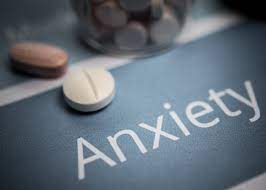
- The anti-anxiety medications for bipolar disorder are a class of drugs known as benzodiazepines. These drugs affect certain neurotransmitters in the brain, calming the mind and easing stress.
- While these medications have been around since the 1960s their use has increased significantly because doctors notice that they work well with many patients who suffer from mental health issues.
- In fact, it’s estimated that almost 50% of Americans taking psychiatric medication take Benzodiazepines which is up dramatically from just 30 years ago when only 25% were being prescribed this drug.
Bipolar Disorder Medication

- To date, there are no Food and Drug Administration (FDA) approved medicines for the treatment of bipolar depression. However, several medications doctors use to treat this condition are off-label.
- There are three FDA-approved antidepressants that can be prescribed by a doctor when treating individuals with bipolar disorder: Fluoxetine (Prozac), Sertraline (Zoloft), and Venlafaxine XR(Effexor).
- These drugs work in different ways, but they help correct problems with brain chemicals called neurotransmitters—specific serotonin
- These drugs can take a few weeks to start working, so people should be patient and wait for the change. Doctors may also have you take an antipsychotic medication with your antidepressant if there are signs of psychosis or mania.
- Another type of drug that has been used is lithium carbonate (Eskalith, Lithobid). It was approved by FDA 40 years ago but its use fell out of favor when better treatments came around until recently due to research showing it helps treat bipolar depression.
Bipolar Disorder Medication Tips
- Treatment for bipolar disorder generally depends on the medication. However, symptoms can occur several times a day and it may not be possible to take medications at all times of the day.
- Therefore, there are some options that could help manage symptoms when they do come up such as rapid-acting injections or long-acting injectable suspensions which require only one injection per month.
- Both these types of treatments have been shown to reduce mood episodes in people with bipolar disorder in comparison to placebo treatment (a pill containing no active ingredient).
Which Bipolar Disorder Medication Is The Best?
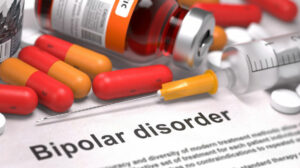
- There are three main medicines that doctors use to treat bipolar disorder. These include lithium, valproic acid, and antipsychotics. Each one of these medications works differently in the brain than other classes of drugs do which is why they have been so helpful for many people who suffer from this illness.
- There is not much research on whether one medicine is better than the others. Some people might respond well to one and not another.
- There are many types of medicine that some people can’t tolerate well. Or, even if it worked for someone else, it might not work for them because of their genetics and individual body chemistry.
- Sometimes doctors will prescribe different types of medicines at once to try to combat certain symptoms or side effects that one type might cause which is known as polypharmacy.
- Each person will have to work closely with their doctor to find what bipolar medicine is best for them and how it impacts both short-term and long-term side effects that may arise while taking it over time.
Side Effects of Bipolar Medication
Bipolar Disorder is a mental illness that causes feelings of intense mood changes including mania and depression. These emotions can cause significant problems in relationships with friends or loved ones as well as at school or work.
Side effects for bipolar medication include:
- Drowsiness
- Weight gain or loss
- Sexual problems
- Nausea and vomiting
If you experience any other side effects contact your doctor right away to avoid further complications.
Psychotherapy Medication
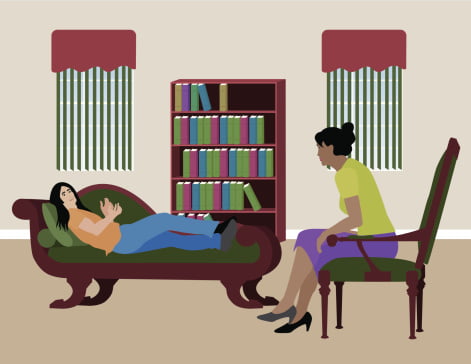
- Bipolar disorder is a serious mental illness that affects the patient’s mood. Mood can fluctuate between highs and lows, with their emotions being beyond normal ranges.
- This not only affects them emotionally but physically as well since they are unable to control how quickly their heart will beat during these states of emotional arousal.
- There are several psychotherapies for bipolar disorders available in order to treat this condition effectively when it occurs within an individual’s life.
- One form includes Lithium Therapy which attempts to prevent further episodes by stabilizing brain chemistry through medication use over time periods up to six months at a time before the effectiveness wears off.
Electroconvulsive Therapy
- (ECT) in this electrical currents passes through the brain to produce a generalized seizure in order to reset the patient’s mood and are used when other forms of treatment fail.
- Psychotherapy for bipolar disorders is known as talk therapy which helps reduce symptoms by allowing patients an opportunity to discuss their feelings and behaviors with professionals who can help provide insight into the condition.
Interpersonal and social rhythm therapy
- Interpersonal and social rhythm therapy for Bipolar Disorder focuses on the connection between a person’s daily routines, sleep schedules, and mood.
- People in treatment often keep a detailed chart that tracks their activity levels throughout the day as well as how they feel before bedtime.
- By recording this information, people can better identify what helps them get into or out of an episode.
- Interpersonal & Social Rhythm Therapy (IPSRT) has been shown to reduce bipolar symptoms by improving medication adherence while also helping individuals avoid common triggers like stressors related to work/school.
Cognitive-behavioral therapy (CBT)
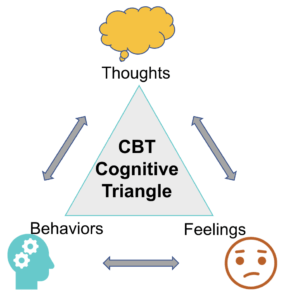
- CBT is a form of psychotherapy that helps patients better understand the relationship between their thoughts, feelings, and behaviors.
- This allows them to identify specific problems in moods, thinking patterns, or how one interacts with others.
- By understanding these connections, an individual can work on changing negative emotions into positive ones and increase healthy coping strategies in life.
- The focus is not just on getting rid of symptoms. You will learn how to live your life without using drugs or alcohol as well as taking medications if necessary.
Psychoeducation

- It is for bipolar disorder is a form of education that seeks to teach patients about their condition.
- One can do this in group settings or one-on-one sessions between doctor and patient.
- There are different types of education programs. These depend on the person you want to teach about bipolar disorder or opioid use disorder treatment.
- These include face-to-face sessions with your loved one as well as phone calls, live video chats, emails, text messages, etc. It all depends on your schedule if possible, but remember that most people do not have an unlimited schedule. These are just a few of the many types of education programs available.
Family-focused therapy
- Family-focused therapy is when a doctor talks with patients and their families about bipolar disorder. A doctor teaches the family about it in a supportive way.
- This approach helps people know the causes of mood episodes in people with bipolar disorder. They also know why these episodes are more severe than other types of disorders.
- The treatment usually consists of two phases: hospitalization followed by outpatient care. During phase one, therapists with family-focused therapy teach the patients and their families how to manage crises.
- Some people who have bipolar disorder might need to do therapy with their families. It can help them feel better and stop being so sad.
Coping With Bipolar Disorder

- The coping methods for bipolar disorder may vary depending on the individual. There can be many reasons for mental health issues, including age and gender. It is important to learn how to deal with these issues before you start treatment.
- Living with a mental illness can sometimes make you feel bad. Having someone to support you can make you feel better. This is good for your mental health. You can express your feelings without feeling that others are judging you.
- It is good to have someone who understands you when you are going through tough times. They can help you when it gets hard, like when there are more problems, like financial problems or marital problems.
- It is good to know about your diagnosis when you have bipolar disorder. You can learn how it will affect you and what makes it happen in your body. This will help you be stronger in the future.
- It is important not to let yourself think about bad stuff related to your diagnosis. This will make it hard for you to manage your symptoms.
Conclusion
Bipolar disorder medication has a positive effect on people who suffer from bipolar disorder. There are many different types of medications that treat this condition, and it is important for those with bipolar disorder to find the right combination of medicines that work best for them. A doctor can help you determine which type of medicine will be most beneficial based on your symptoms.
For more information, please contact MantraCare. Bipolar disorder is a mental illness characterized by extreme shifts in mood, energy, and activity levels. If you have any queries regarding Online Bipolar Disorder Counseling experienced therapists at MantraCare can help: Book a trial Bipolar Disorder therapy session
